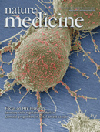 Last month, DNA sequencing in the UK got a boost with the launch of the Genome Analysis Centre (TGAC) in the eastern city of Norwich. The £13.5 million ($22 million) facility hosts biologists and bioinformaticians who will perform genome sequencing on plants, animals and microbes, as well as develop new bioinformatics tools for handling the data, which will be distributed via the European Bioinformatics Institute. In the future, TGAC will build commercial partnerships and offer doctoral and mid-career sequencing and bioinformatics training.
Last month, DNA sequencing in the UK got a boost with the launch of the Genome Analysis Centre (TGAC) in the eastern city of Norwich. The £13.5 million ($22 million) facility hosts biologists and bioinformaticians who will perform genome sequencing on plants, animals and microbes, as well as develop new bioinformatics tools for handling the data, which will be distributed via the European Bioinformatics Institute. In the future, TGAC will build commercial partnerships and offer doctoral and mid-career sequencing and bioinformatics training.
The center’s opening on 3 July came amidst a flurry of announcements relating to high-throughput genome sequencing. In May 2009, the UK Medical Research Council (MRC) announced more than £7 million in new funding for high-throughput genome sequencing research scattered across nearly a dozen institutions in Britain. And, on 24 June, the MRC followed with another £2 million to, among other things, support researchers at Oxford University who are exploring mouse and human genetics and sequencing the DNA of pathogens.
The centre is run by the UK Biotechnology and Biological Sciences Research Council (BBSRC) as an independent nonprofit institution under the direction of Jane Rogers, former head of sequencing at the Wellcome Trust Sanger Institute near Cambridge, UK. But a fraction of its funding and some of its oversight comes from local city and county governments.
The likeliest discoveries at TGAC with direct medical applications will come from the center’s research into drug-resistant microbes or advances in bioinformatics. The centre’s main remit is to apply genomic sequencing tools to agricultural applications, a major local industry.
“The genomic analysis of microbes will be a major focus, not only because they infect both animals and plants, but because they are already a source of drugs for the treatment of bacterial and fungal infections, and, therefore, they have the potential to provide new, superbug-beating antibiotics,” Rogers said in a statement marking TGAC’s launch.
The current TGAC staff of four contains just one computational biologist, though plans call for a total staff size of 20 by the end of this year and perhaps as many as 70 by around 2011 (including support and commercial development staff). In the immediate future, the center will focus on installing equipment, hiring staff and establishing collaborations with outside research groups.